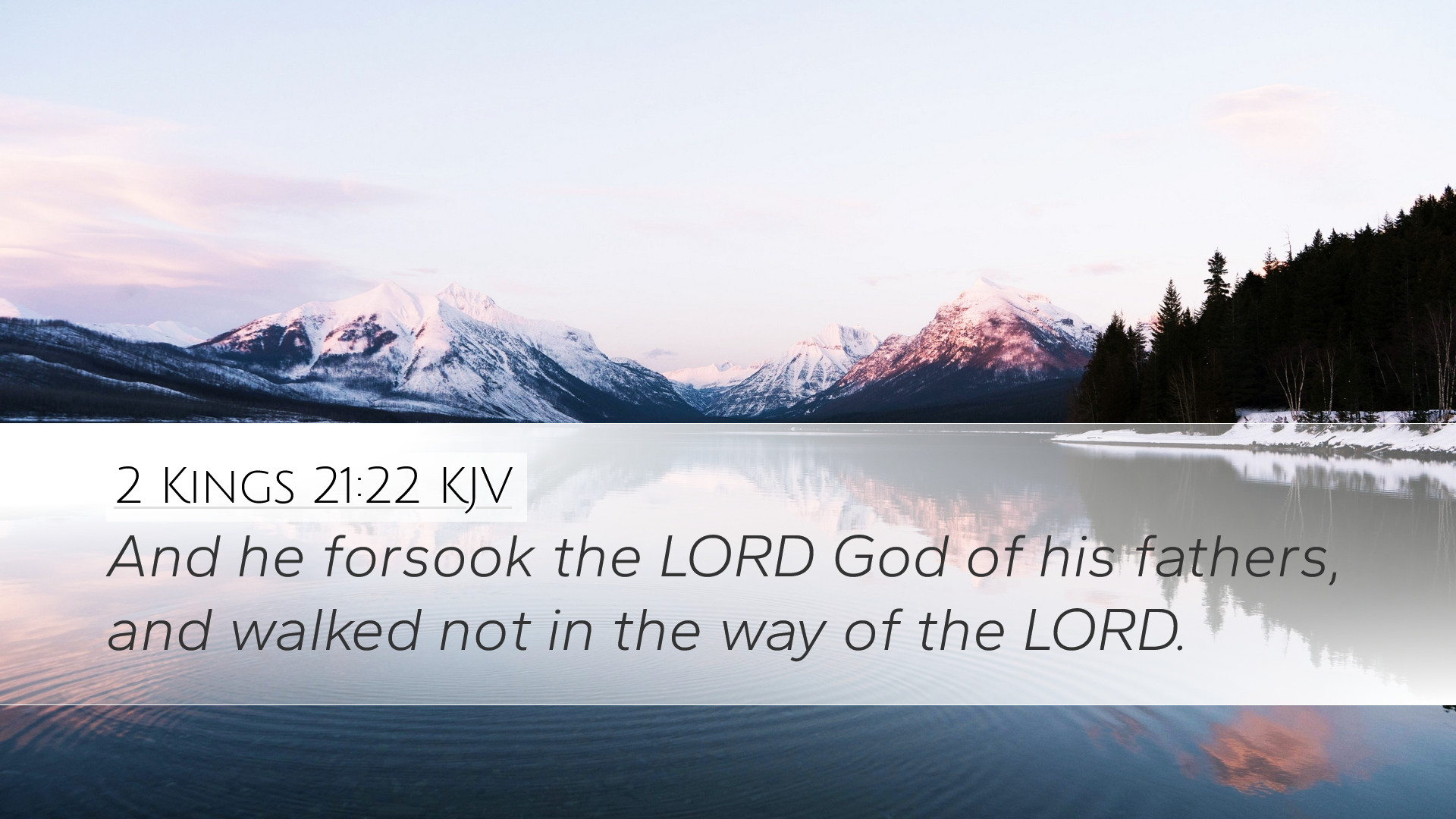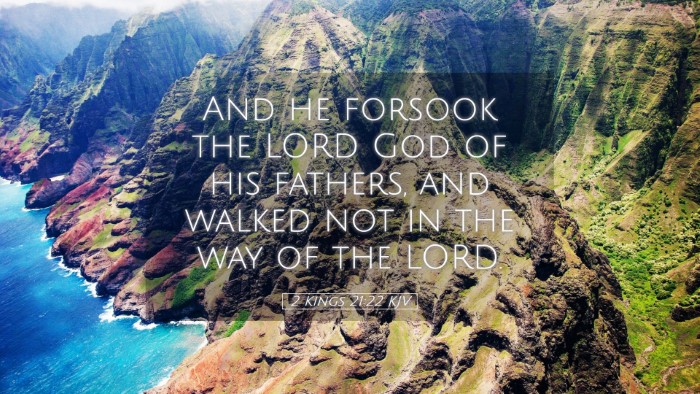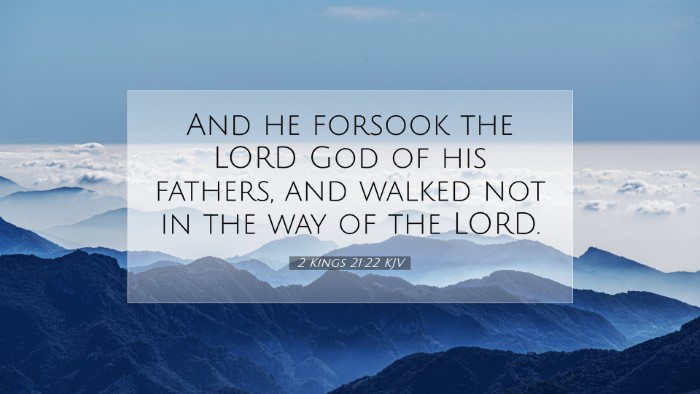Commentary on 2 Kings 21:22
Verse: "But he did not walk in the ways of the Lord, as his father David had done, but walked in the way of the kings of Israel, and made his son pass through the fire, according to the abominations of the nations whom the Lord had cast out before the children of Israel."
Introduction
This verse encapsulates the tragic spiritual decline during the reign of King Manasseh of Judah. It provides profound insights into the nature of leadership, the influence of previous generations, and the consequences of turning away from divine commandments. Through the lens of various eminent commentators, we will explore the ramifications of Manasseh’s actions and their implications for the faith community.
The Context of 2 Kings 21
2 Kings 21 provides a detailed account of King Manasseh’s reign, which is often characterized as one of the darkest periods in Jewish history. His actions set a precedent for the spiritual decline of the nation and are viewed critically by Biblical historians.
1. Historical Background
- Exile and Idolatry: Manasseh’s reign is marked by rampant idolatry, including the introduction of worship practices such as child sacrifice, which was an abomination to the Lord.
- Comparison with David: Unlike his father, King Hezekiah, who sought to restore faithfulness to Yahweh, Manasseh’s path was one of rebellion. He directly contradicted the legacy of King David, who is often cited as a standard of righteousness.
2. Manasseh's Apostasy
Manasseh's failures are an example of how power can lead to the abandonment of piety. His engagement in pagan practices highlights the ease with which leaders can stray from foundational faith principles.
Commentary Insights
Matthew Henry's Perspective
According to Matthew Henry, this verse emphasizes the "great wickedness" of Manasseh in forsaking the ways of the Lord. He notes the stark contrast between Manasseh and his father David, pointing out that David was a man after God’s own heart. Henry elaborates on the gravity of Manasseh’s idolatrous actions, especially the act of making his son pass through the fire, which symbolizes the ultimate rejection of God’s commandments in favor of surrounding pagan practices.
Albert Barnes' Interpretation
Albert Barnes provides a thorough examination of the phrase "walked in the way of the kings of Israel," noting that this reflects a deliberate choice to follow the path of sin set by previous leaders, who led their people into idol worship. Barnes underscores that Manasseh's actions invoked divine wrath and consequences, which were felt not only during his reign but had lasting effects on the nation of Judah.
Adam Clarke's Analysis
Adam Clarke emphasizes the total abandonment of the religious heritage handed down through King David’s lineage. He highlights that Manasseh's actions, including his establishment of altars to foreign gods, represented a blatant disregard for God's covenant with Israel. Clarke notes the tragic irony that despite witnessing God's power through the previous kings, Manasseh chose to reject that legacy for one of utter darkness.
Lessons for Today
The narrative surrounding Manasseh serves as a profound warning for modern readers, particularly for those in positions of leadership within faith communities. There are several crucial lessons we can draw from this text:
- Legacy of Leadership: Leaders have a significant influence on the spiritual direction of their communities. Manasseh's failure to uphold the values of his forebearers impacted generations.
- Consequences of Apostasy: The text epitomizes how straying from divine principles results in severe consequences, both personally and communally.
- The Need for Faithfulness: In every age, the calling remains for faithfulness to God's commands, reminiscent of David’s obedience.
Conclusion
2 Kings 21:22 encapsulates a pivotal moment in the history of Israel where the actions of a king had immense ramifications. Through the insights of respected commentaries, this verse not only facilitates deeper understanding of the historical context but also calls contemporary readers to reflect on the implications of their faith and leadership. The perennial truth remains: will we choose to walk in the ways of the Lord or in the ways of those who have rejected Him?


